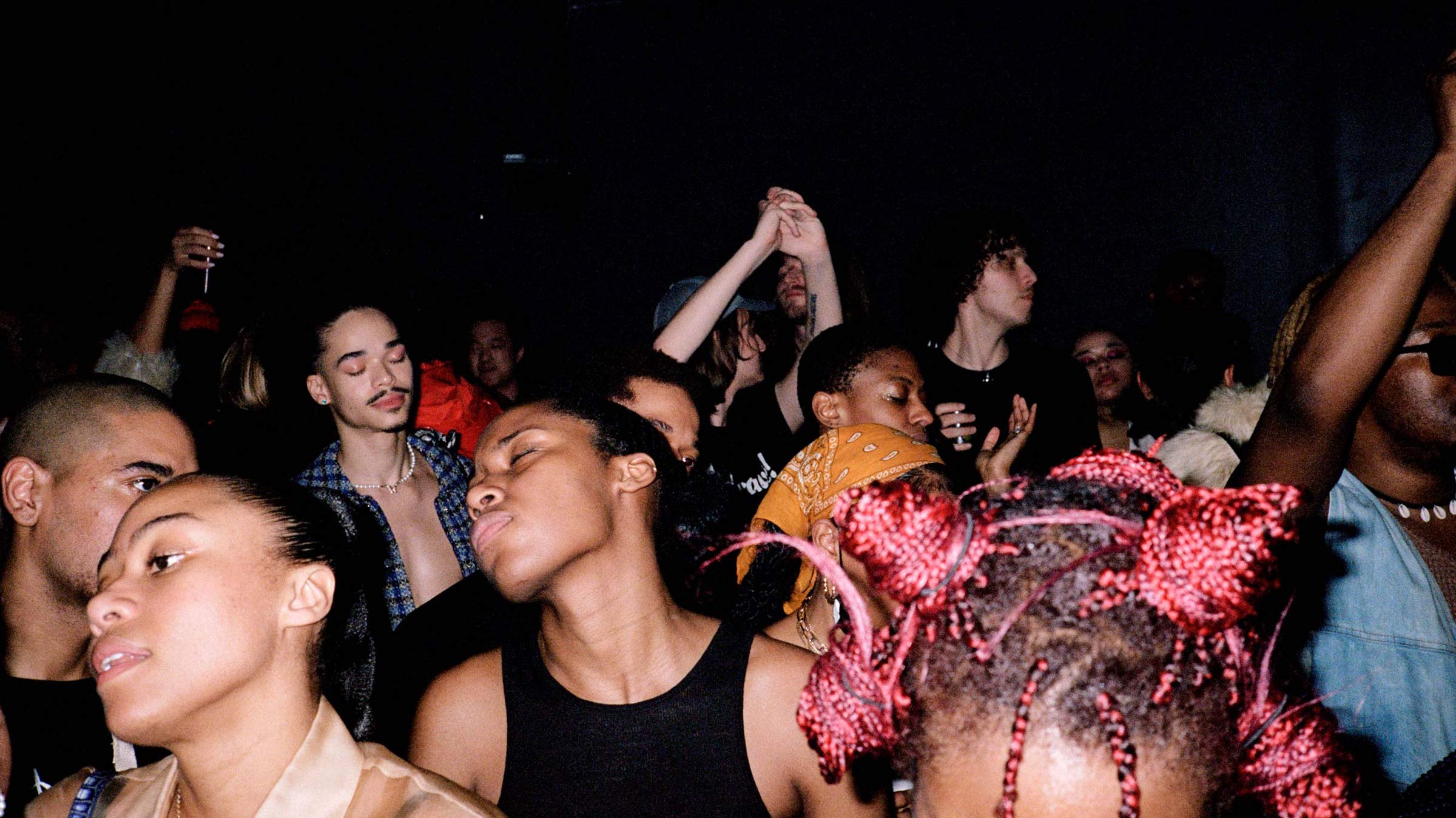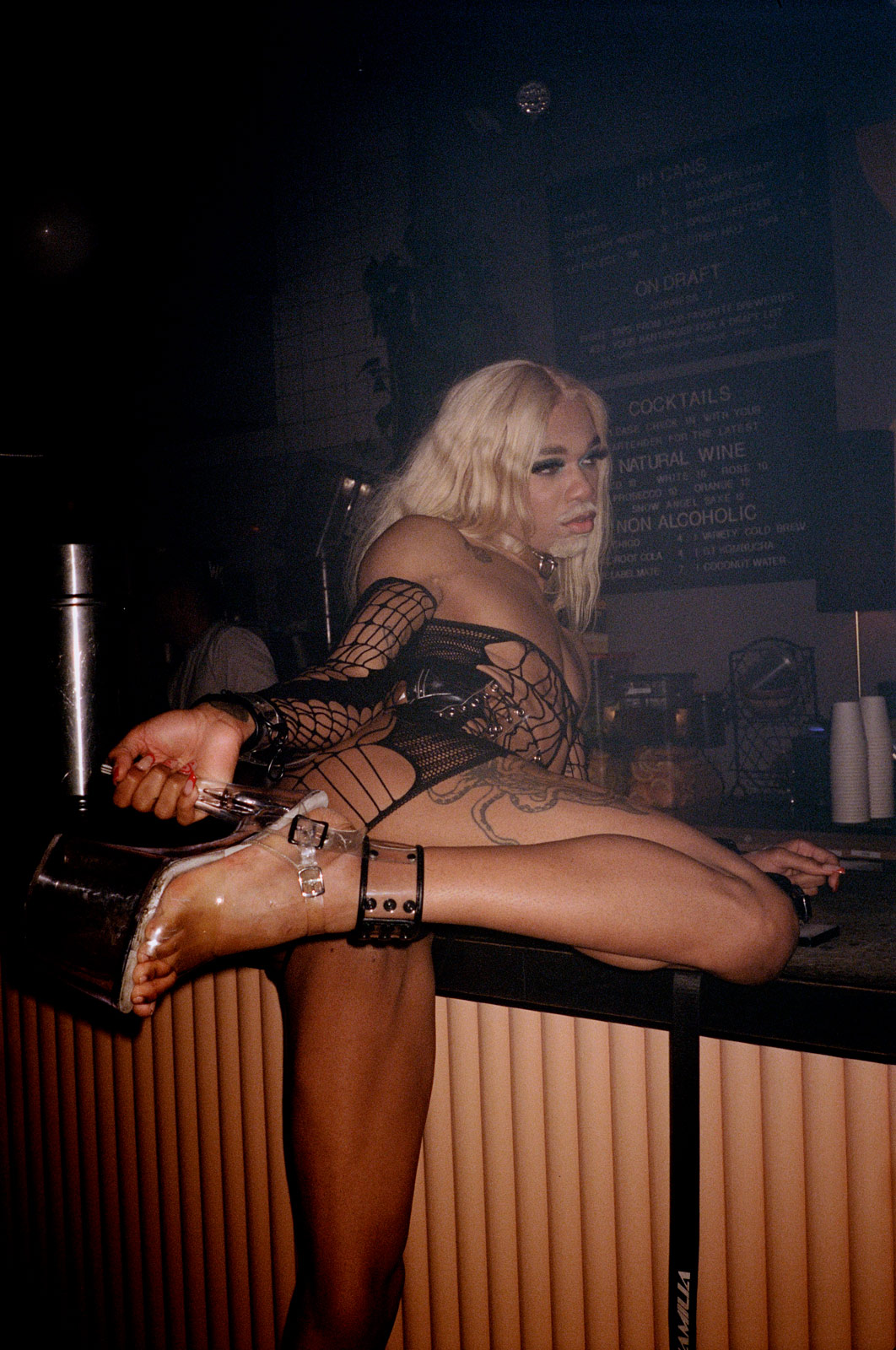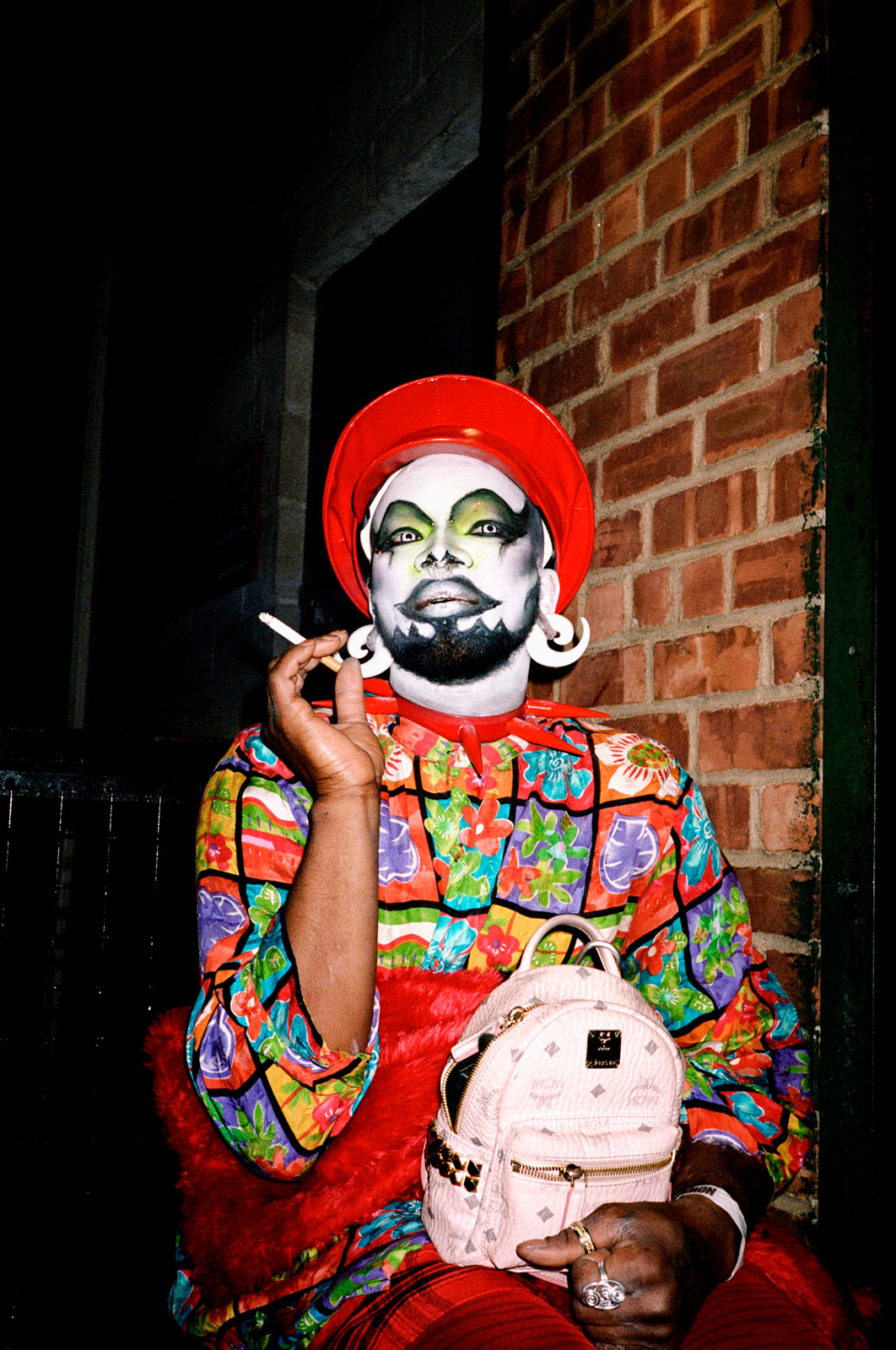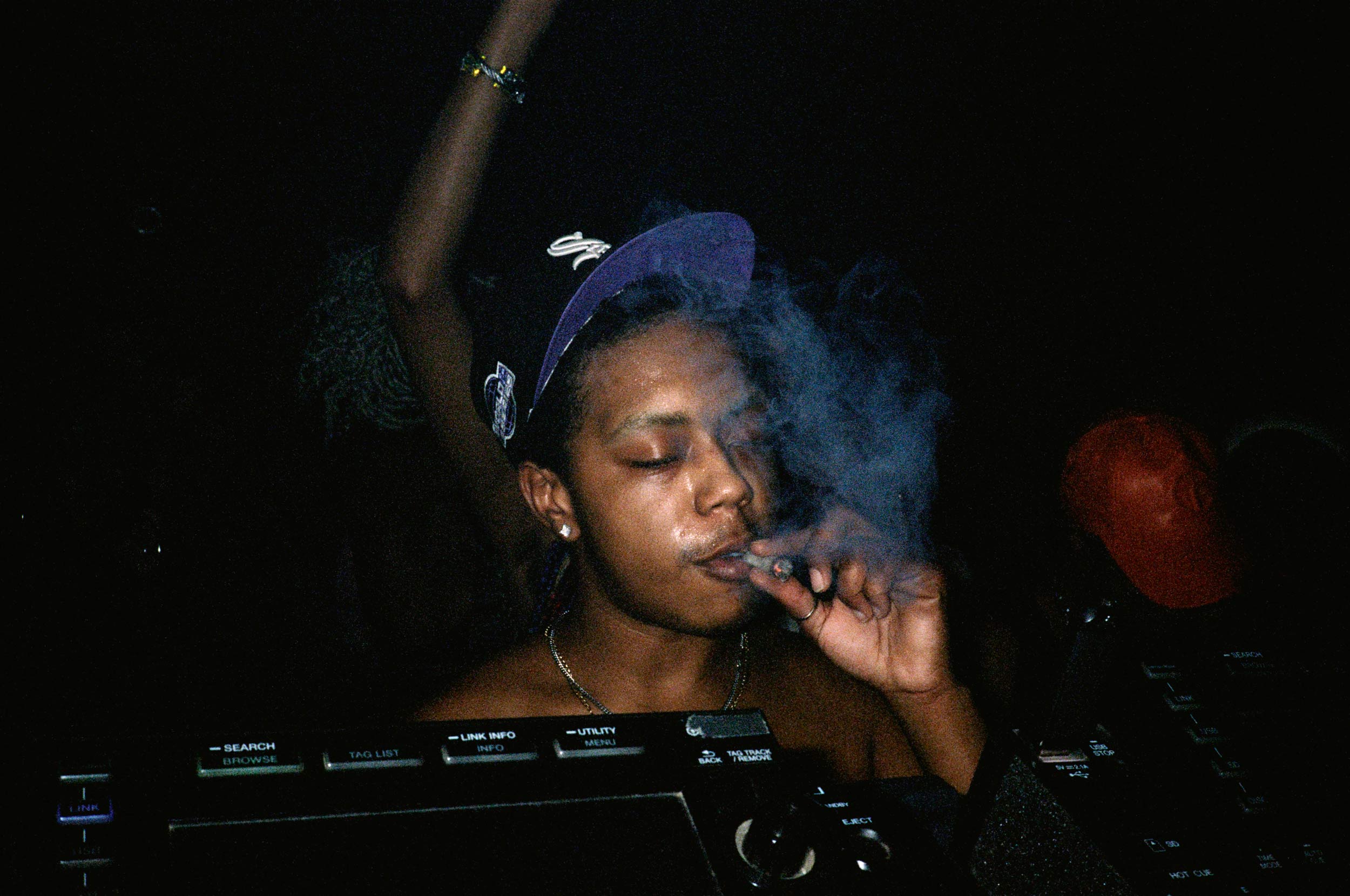The New York music festival, founded by Frankie Decaiza Hutchinson, featured acts by LSDXOXO, Juliana Huxtable, and more
From the beginning of time, dance and music have functioned as an act of celebration, community, and a means to ride through disparity—especially through the lens of Blackness. In this, Dweller festival is imagined by its creator Frankie Decaiza Hutchinson, alongside Ryan Clarke and Enyonam Amexo. The story of people across the African diaspora finding solidarity and refuge amongst chaos has been told time and time again.
Even Dweller’s own name derives from that same concept. “Dweller” emanates from Drexciya, a collective from Detroit that constructed records based on the mythology of enslaved Black people being thrown overboard on slave ships, and as a result, creating an exclusive and lively sanctuary for themselves underwater. With that notion, it would be understood that everything contrived from Black people would serve as a modern-day haven for them as well. But as we’ve seen the products of techno, nightlife, and club culture grow to touch others, it has quickly loosened its grip in the hands of Black MCs and DJs over time.
Techno, like many other genres, has undergone a complete disappearance in the face of Black culture for the sensibility of white aesthetics. Dweller is that repelling force in the face of this subtle erasure. Founded in 2019, the New York festival is the outcome of prioritizing and platforming Black electronic artists. The sound that we hear today, erupting out of congested warehouses, was pioneered by Black queer communities who didn’t have spaces to prosper, and Dweller serves as a way to honor them, while bringing that ancestral energy into the present day.
This year, the theme of the festival was unleashed to the public with the question, “How do we find each other in the noise?” With many predictions falling close to the literal event that plays out during most raves amidst the visual and sonic noise—the symbolic affection that represents the idea of seeking your community in an oversaturated space, or enduring the turbulence of life—this year actually focused on reestablishing the intergenerational ties within the Black electronic space. With a prolific lineup including acts from LSDXOXO, Juliana Huxtable, Byrell The Great, and more, Dweller exemplifies a curatorial dedication to the polylithic spectrum of Black artistry. Intergenerational connection and education don’t stop with bass-induced clubbing—scheduled alongside the raves were educational talks, screenings, and curated readings, spearheaded by Ryan Clarke.
The electronic music festival makes you envision the first time you were ever allowed to go to a party without parental supervision. In the midst of the night, you can sense the excitement and bass from down the block as you walk up to the lengthy line of mostly queer folks donned in Telfar, Luar, and light-fitted pieces draped across their bodies. A sense of overstimulation masked as indulgence washes over you as you bask in the glory of considerable bodies moving, interacting, and connecting within one space. Foggy air, electric-colored lights, and vibrating walls fill you in as you’re taken back to the addictive impurity that is techno. The feeling of a consistent thump doesn’t escape the bass of your body; it might switch from rhythmic to vigorous thumping, but rises past inconsistency. The hypnotizing pulses stretch across spaces both past and present, reaching cross-generational cadences that defy the limits of genre.
A standout performance comes from SydFalls, rising from Chicago. The DJ had their noteworthy moment over quarantine performing at TWEAKS’ “Fusion Frenzy” Boiler Room special. During the concluding hours of 5 to 7 a.m. at Nowadays, Syd took everyone to church for the last performance of the night, through a sacred and intensely emotive set. Its inspiration stemmed from “Qualities of gospel like it being future oriented, trancelike, and at times electronic are often overlooked but paring it with dance music reintroduces it in that light. Simply put gospels legacy is making black folk feel okay, helping us cope. From its inception in the black community it’s been Intrinsically different from white Christianity, we molded it into what we needed it to be for us. And that molding is what it feels like I’m doing when I incorporate gospel into my sets.”
All sounds of the diaspora were heard in an experimental sequence, and when the sun rose, gospel played to drive in the morning. “When I found out my set time was 5 to 7 a.m., and that the sun would rise in the middle of it, I knew I’d play gospel,” says Syd. “I think that added to the nostalgia for a lot of people, because Sunday mornings are when gospel appears the most in our life. I mixed a lot of it into techno, at 180 to 160 bpm, and it created a sacred but secular sonic experience. I had honestly never felt like that whilst playing—there was stomping and laughing and crying, I was crying right along with them. It felt needed. These moments of joy really do sustain us.”
The urgency that came out of the pandemic still lives on today in the heart of the rave. The need for connection—to see, hear, feel, and enjoy within the Black community—has become more binding through safe spaces like Dweller.









































